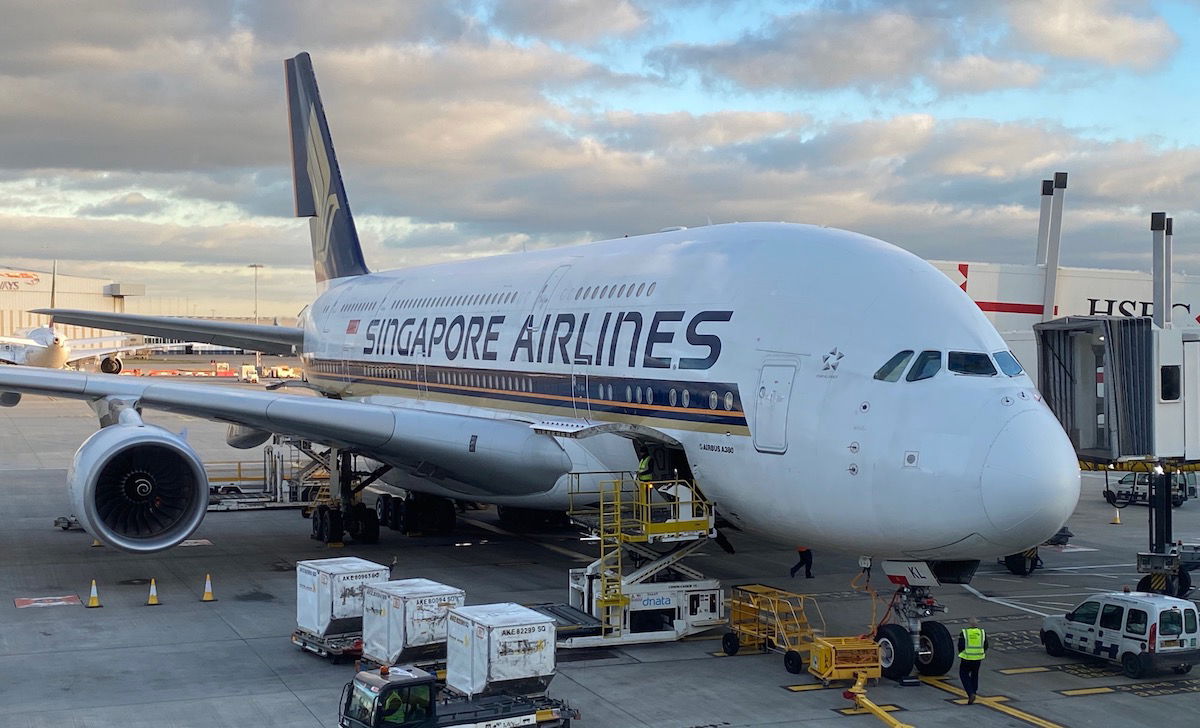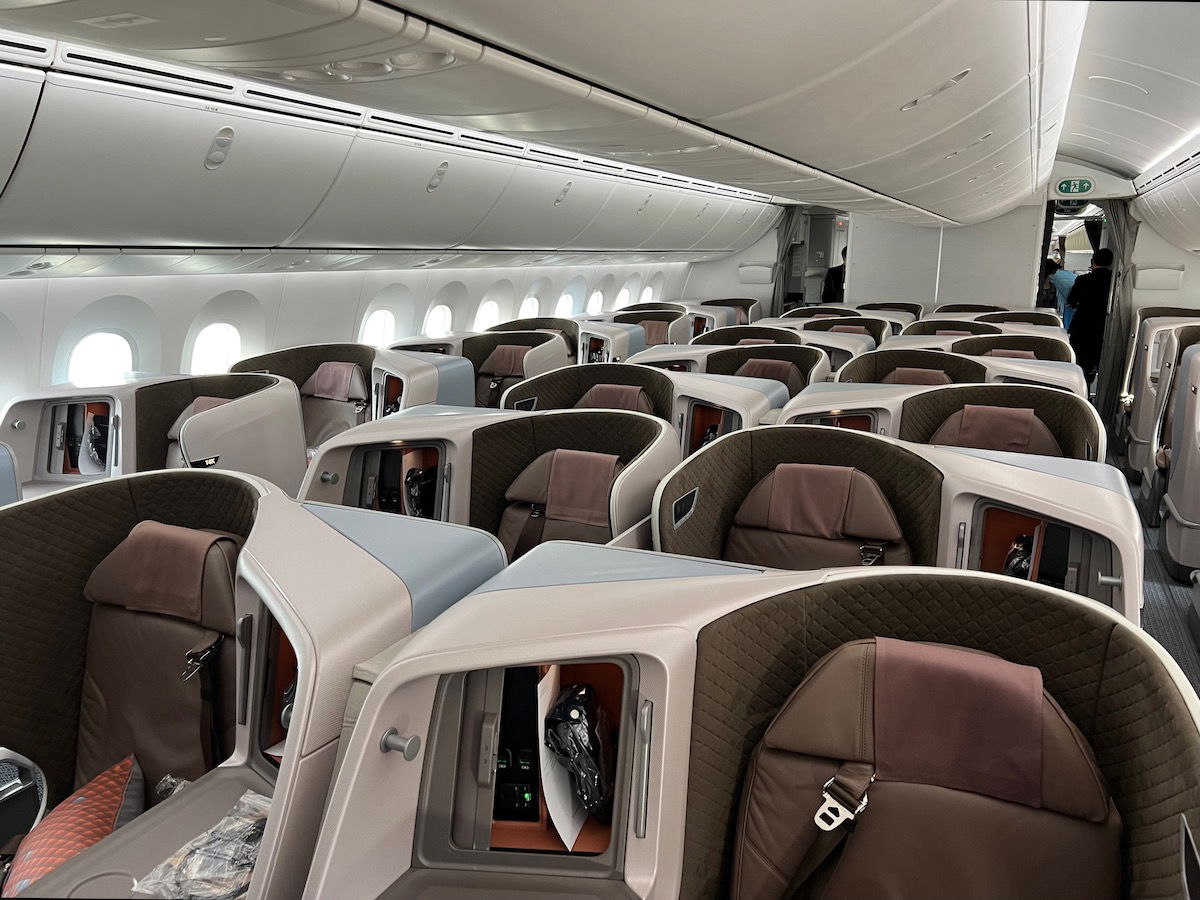Singapore Airlines has just reported its results for the 2024-2025 financial year, and they’re good, though the airline notes the uncertainty that the current environment is causing. Employees are also being rewarded with huge bonuses.
In this post:
Details of Singapore Airlines’ strong financial results
Singapore Airlines reported its results for the past financial year, which ended on March 31, 2025. The company reported a record S$2.8 billion net profit. The catch is that S$1.1 billion of that was a one-off non-cash accounting gain from the merger between Air India and Vistara (Singapore Airlines has long been a Vistara shareholder, and has a stake in the new, combined company).
The company’s actual operating profit was S$1.7 billion, down significantly compared to the S$2.7 billion profit the year before, given the pressure that we’ve seen on yields.
Just to compare some year-over-year numbers for Singapore Airlines and its low cost subsidiary Scoot:
- The average load factor was 86.6%, a 1.4% decrease over the year prior
- The airline group carried 39.4 million passengers, an 8.1% increase over the year prior
- Revenue for the year was S$19.5 billion, a 2.8% increase over the year prior
- Revenue per available seat kilometer was S$0.09, a 6.3% decrease compared to the year prior
What we’re seeing with Singapore Airlines is in line with what we’re seeing in the rest of the industry. A couple of years back, we saw great yields for international travel, given that airlines hadn’t fully restored capacity to pre-pandemic levels.
But as we see more capacity added back, yields and load factors are suffering somewhat, which isn’t surprising. Still, the airline is achieving a solid profit.

Singapore Airlines employees get huge bonuses
Singapore Airlines has revealed that it will pay staff bonuses equal to roughly 7.45 months of salary. This profit sharing is based on a longstanding formula that has been agreed upon with unions.
For what it’s worth, for the previous year, the airline paid staff a bonus equal to 7.94 months of pay, so this bonus isn’t quite as generous as that, but is still huge. Meanwhile the year before that, the airline paid staff a bonus equal to 6.65 months of salary, in addition to an ex-gratia bonus equal to 1.5 months of salary, in recognition of their hard work and sacrifice during the pandemic.
It goes without saying that this is a huge bonus for staff, and is something they worked hard for. In this case, this is also a bonus that the staff are contractually entitled to, so it’s pretty wild to think that frontline employees could regularly be getting bonuses that increase their salary by well over 60% on an annual basis. I guess it shows you in what a good situation some airlines are.
Singapore Airlines is continuing to set a record with its profit sharing percentages. We recently saw Emirates announce that staff would receive a bonus equal to 22 weeks worth of pay. That’s not based on any formula, but rather is at management’s discretion.
Then you have Delta, which has the most profit sharing among US airlines, in absolute terms. Employees there recently received 10% profit sharing of their overall pay. That’s of course great by US airline standards, but it’s not a 60%+ bonus on salary, as we’re seeing at Singapore Airlines.

Singapore Airlines warns of uncertain outlook
While Singapore Airlines’ past financial year has been good, the carrier’s outlook isn’t all that optimist. The company emphasizes that it’s in a “strong position to navigate global trade and macroeconomic uncertainties due to its robust foundations and long-term strategic investments.” As the airline explains:
The global airline industry faces a challenging operating environment amid changing tariff policies and trade tensions, economic and geopolitical uncertainties, and continued supply chain constraints. These factors may impact consumer and business confidence, potentially affecting both passenger and cargo markets.
The Group remains vigilant, closely monitoring developments and prepared to respond swiftly to market conditions. The Group will rely on its strong foundations, including dual brand portfolio airline, well-diversified global network, a robust balance sheet, talented and dedicated workforce, as well as industry-leading digital capabilities to navigate these challenges.
Shifts in global passenger and trade flows may also open new opportunities for the Group, with its well-diversified global passenger and cargo network. Its hub in Singapore offers a strategic advantage, given its position at the centre of growing economies in South East Asia, South Asia, and the wider Asia-Pacific region, and the Group’s strong presence in these markets.

Bottom line
Singapore Airlines has reported a record profit for the past year, though that’s only because of a one-time accounting gain from the Air India and Vistara merger. In reality, the carrier’s operating profit is down quite a bit from the previous year, due to a drop in yields.
Singapore Airlines’ financial results are still great, but as you’d expect, airlines are under more pressure than in the past. As the airline has added more capacity, yields and load factors have declined a little. The outlook isn’t that great either, with the company warning of uncertainty.
Fortunately employees at the airline are being rewarded for these results, and are receiving bonuses equal to 7.45 months worth of pay. This is just a little less than the bonus they received the year prior. It’s great to see how well staff are being rewarded, as these bonuses now make up a large part of compensation at the airline.
What do you make of Singapore Airlines’ financial results, and these employee bonuses?





Hmm so The best Airlines share their profits heavily with their employees. Wonder if that's a coincidence...
I’m glad you reported the facts without fear Ben.
The SQ media machine heavily pressures the media outlets to only report on the positives of the result, which is why you see headlines trumpeting this is a record profit.
It’s far from it and SQ’s operating profit is actually down 37% despite most of its competitors reporting double digit increases and in Emirates’ case, a world record.
The lustre of SQ is...
I’m glad you reported the facts without fear Ben.
The SQ media machine heavily pressures the media outlets to only report on the positives of the result, which is why you see headlines trumpeting this is a record profit.
It’s far from it and SQ’s operating profit is actually down 37% despite most of its competitors reporting double digit increases and in Emirates’ case, a world record.
The lustre of SQ is all extinguished as it falls further and further behind the top-tier competition.
SQ Sceptic, speaking from many years experience of bi-annual SQ flights, one can attest to the lack of SQ lustre degradation. We will soon see, when on the 17th of June, the 2025 World Rankings are announced, which of us is correct, yes?
Nice to see an airline that takes care of employees, loyalty members, and general passengers. I wish we had such visionary leadership in the U.S. airline industry but the heads of our airlines are generally trying to find ways to put the squeeze on employees, customers, or both rather than increasing business by building a great company that people want to fly.
Congrats to SQ's employees.
While I think it's soft product is dated and needs an overhaul, its cabin crew provide excellent service onboard consistently.
hard product*
"one-off non-cash accounting gain"
Far from some great success then. The bonus is big, but an accounting gain isn't at all impressive. Any business owner can create an accounting gain
quorumcall, have you flown SQ?
Nobody who has enjoyed an SQ flight should not be surprised at reading Ben’s article. Thank you Ben.